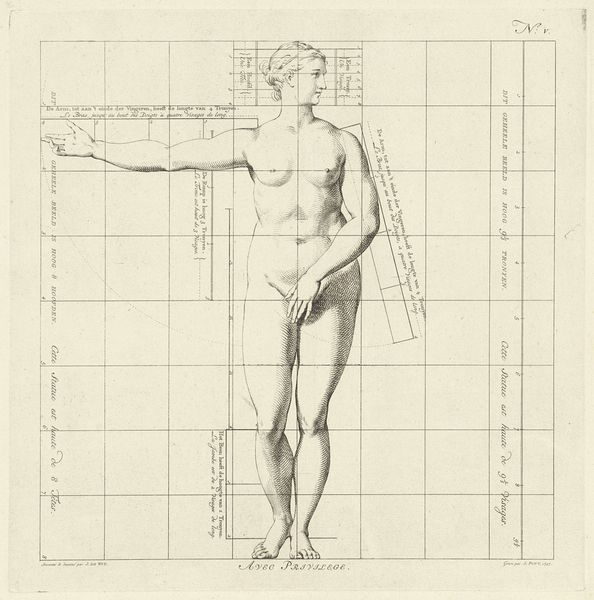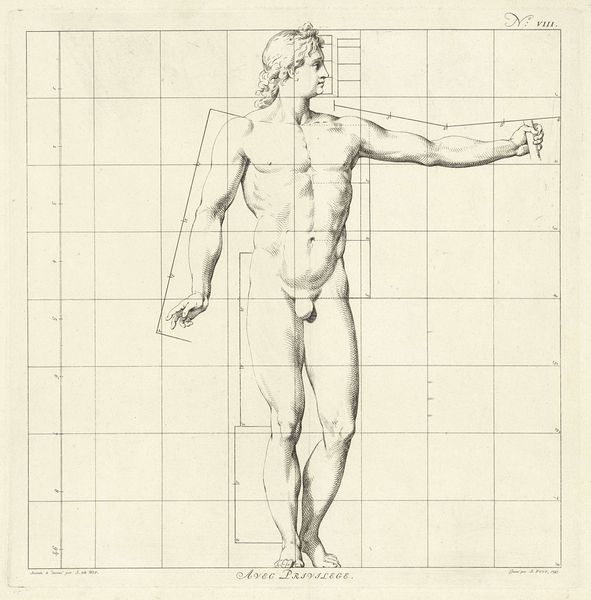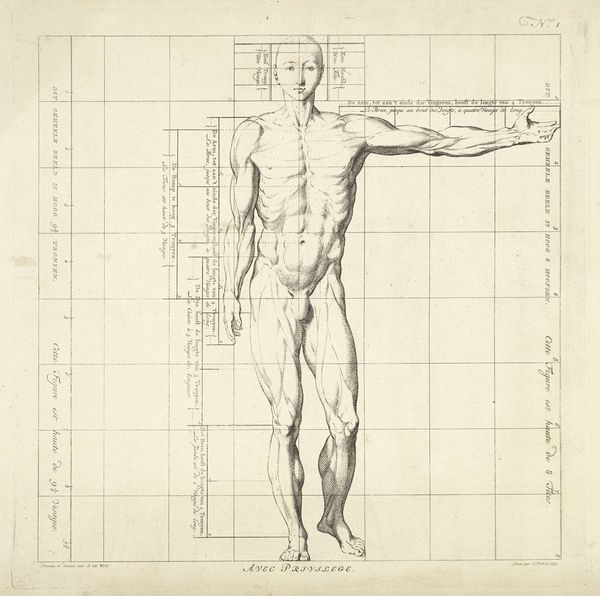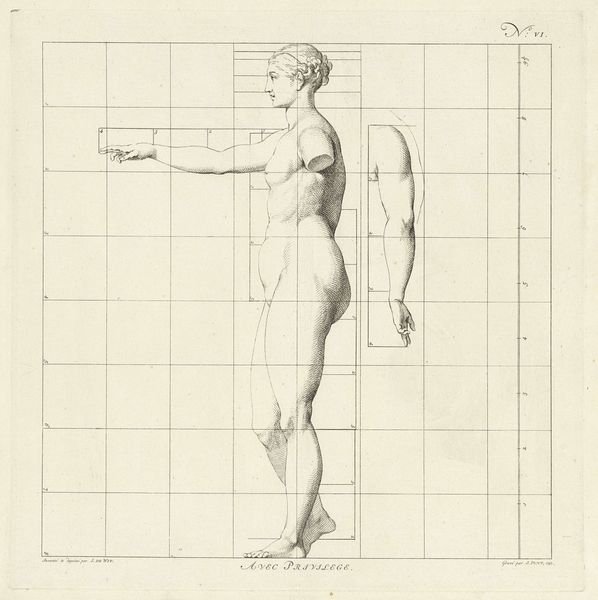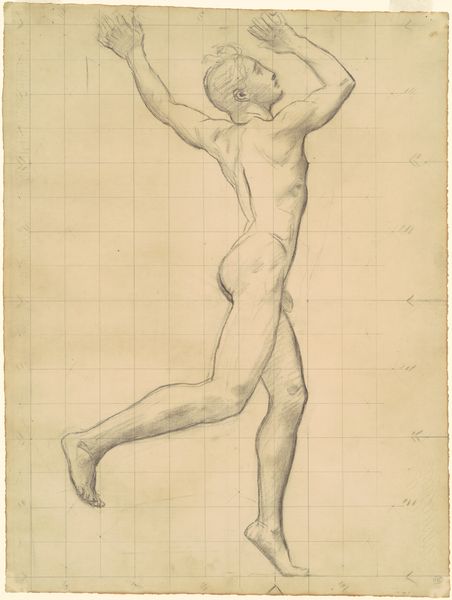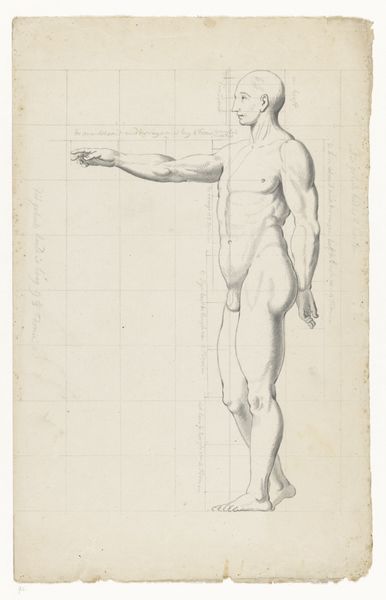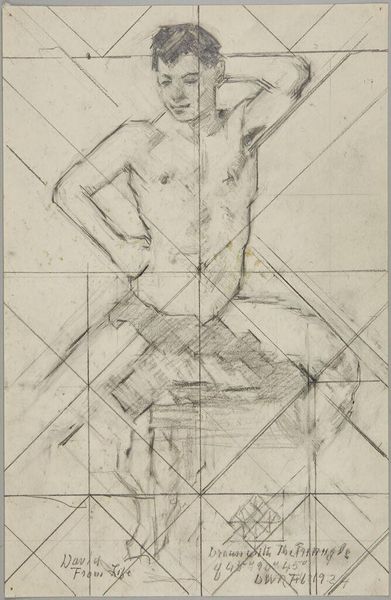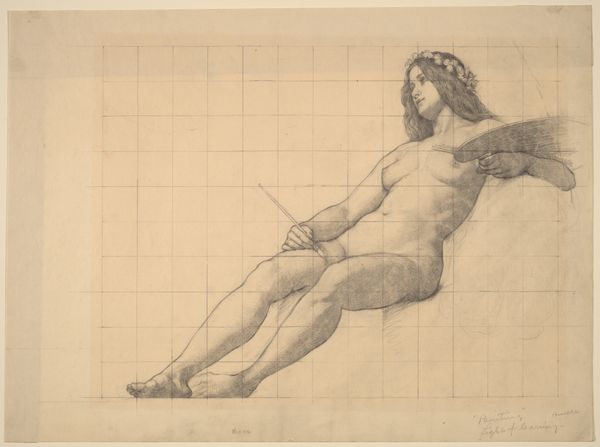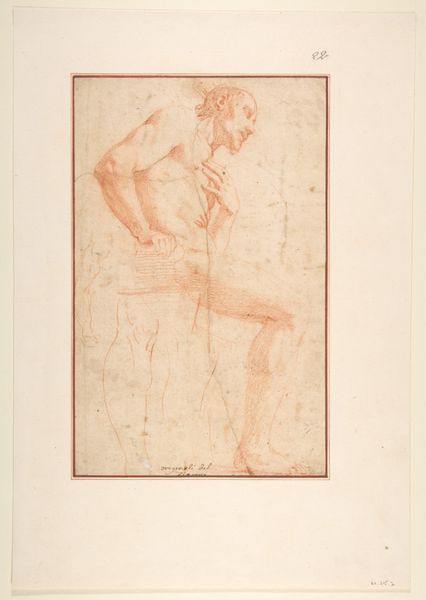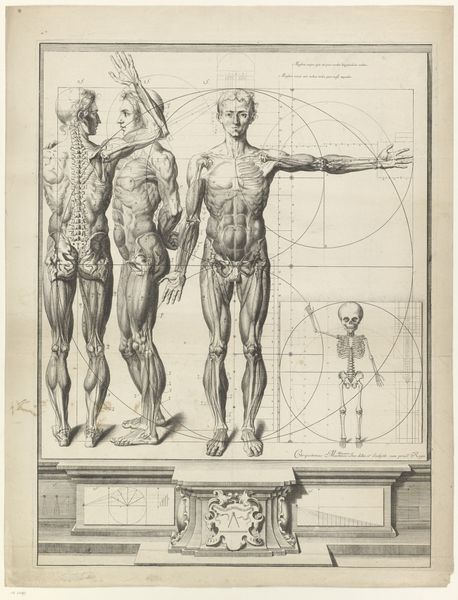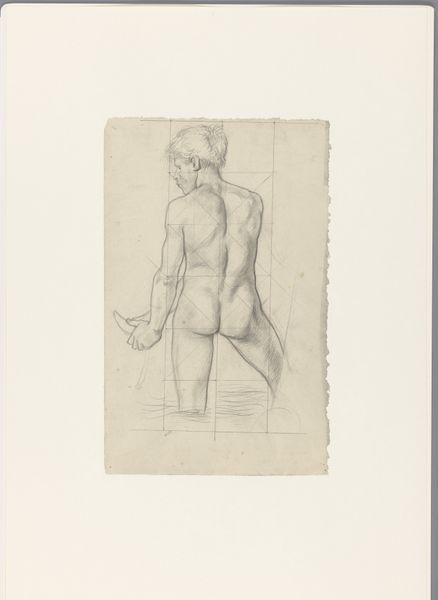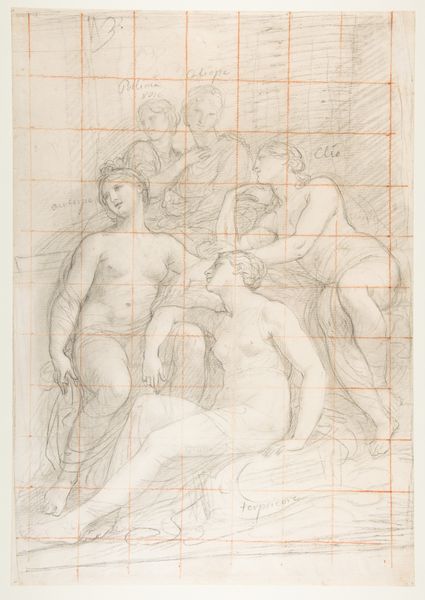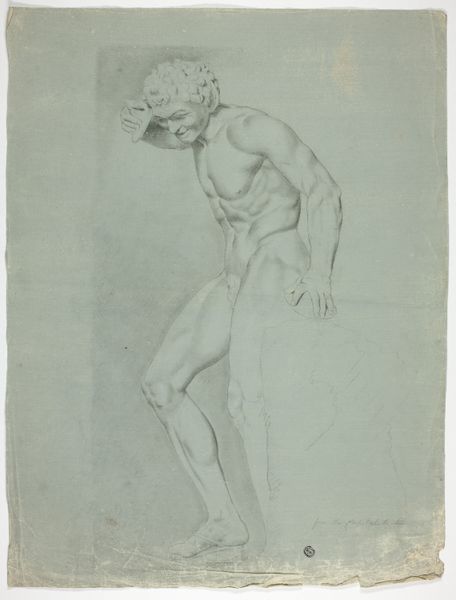
drawing, pencil
portrait
drawing
amateur sketch
light pencil work
baroque
pencil sketch
sketched
classical-realism
study drawing
perspective
figuration
form
personal sketchbook
idea generation sketch
sketchwork
pencil
technical sketch
line
history-painting
academic-art
nude
initial sketch
Dimensions: height 384 mm, width 382 mm
Copyright: Rijks Museum: Open Domain
Curator: We're looking at Jan Punt's "Proportiestudie van het lichaam van een vrouw," created around 1747. It's currently held in the Rijksmuseum collection. Editor: It’s austere, almost clinical. The nude female figure is presented from the back, meticulously overlaid with a grid and annotations. Curator: Indeed, it reads as an academic exercise. The pencil lines, the almost scientific breakdown of the body – it's all about understanding human form through measurement and proportion. Notice the text indicating the various measurements. Editor: And the ‘Avec Privilege’ implies a protected production process, suggesting Punt had permission to disseminate this knowledge, to essentially control the visual vocabulary circulating. Was this common? Curator: Very much so. Think about the academies that were emerging then, with their emphasis on drawing from life, based on classical ideals. This drawing isn't just a likeness; it's a tool for artists to create idealized figures rooted in accepted proportions, but there's also an economic aspect. It was work. Editor: True, this methodized approach shaped artistic labor, didn’t it? Creating a standard against which to measure artistic competence but in the way constricting representation of different body shapes? Curator: Absolutely, and this connects to the societal role of art itself. Jan Punt used readily available, relatively cheap materials to produce this instructional drawing. Editor: There’s a coolness here, isn’t there? The artist is less interested in evoking emotion and more focused on conveying quantifiable information. It makes me question how we can deconstruct what constitutes “good art” from an almost mathematical approach, to appreciate the work as the representation of female form. Curator: Precisely, the material reality, of this being an aid and an object of knowledge, invites questions about the structures of art making itself. Editor: Examining Jan Punt's methodical approach truly provides a framework for appreciating artistic intention and historical context. Curator: Absolutely. It really offers an important reminder of art making and access to knowledge.
Comments
No comments
Be the first to comment and join the conversation on the ultimate creative platform.
